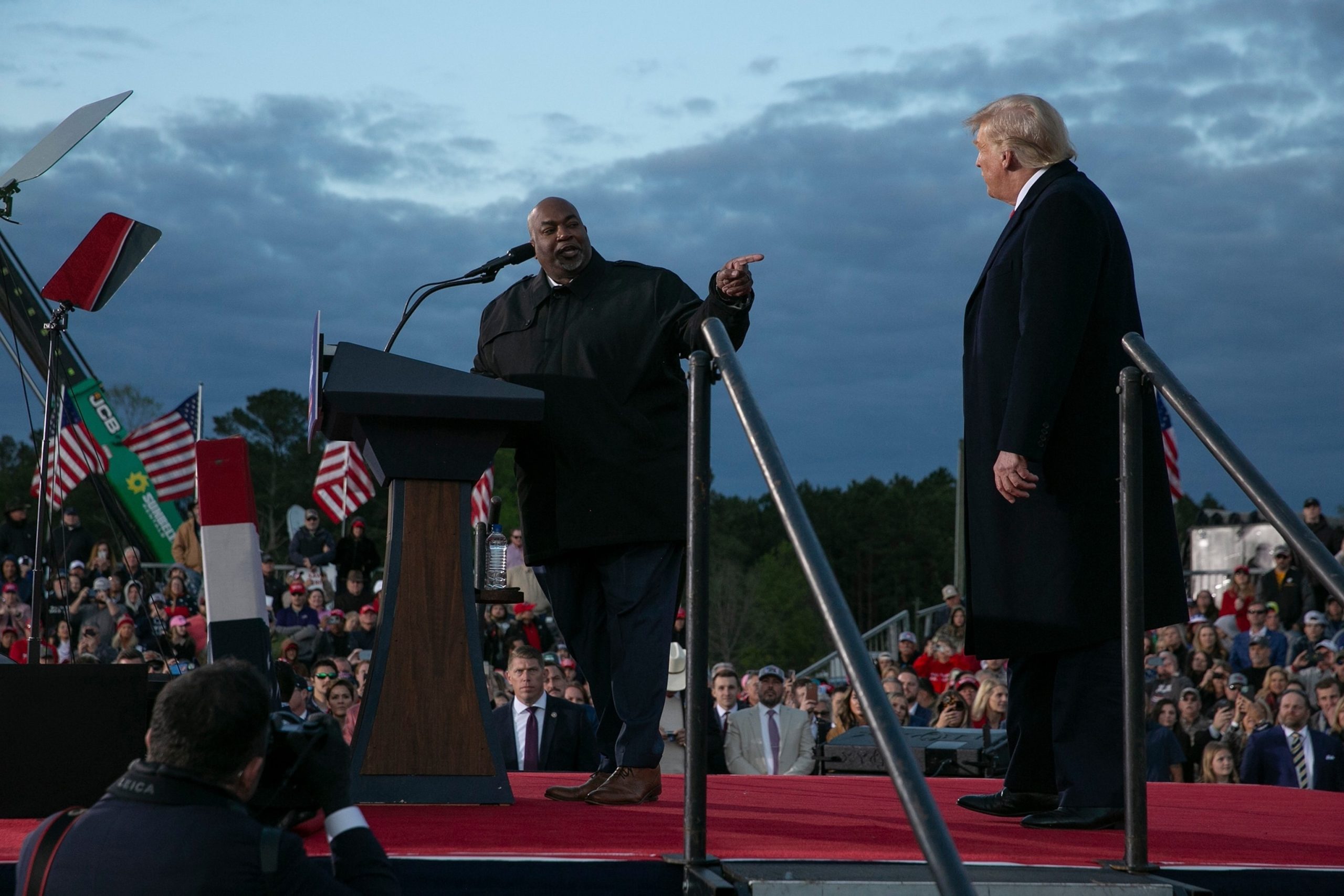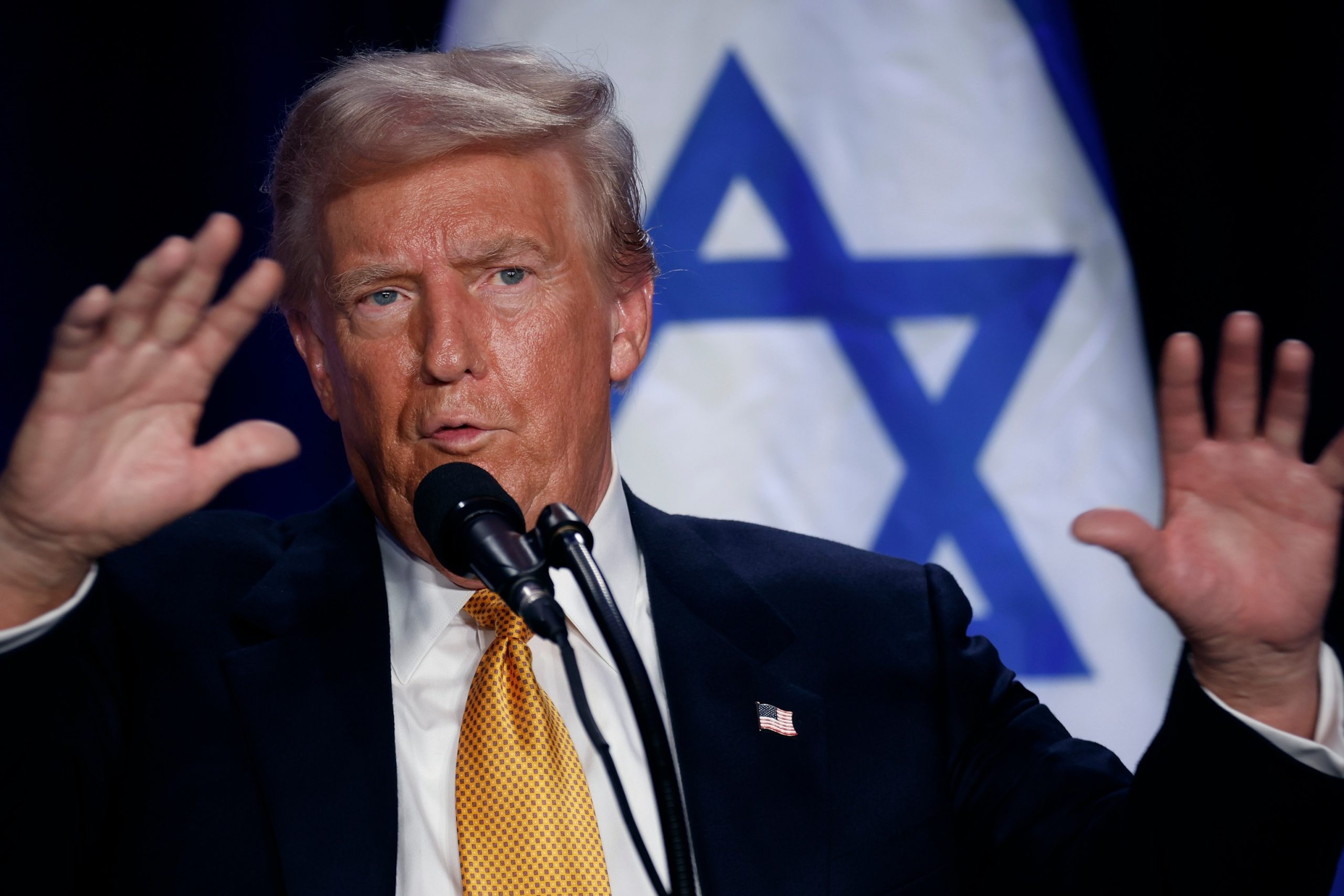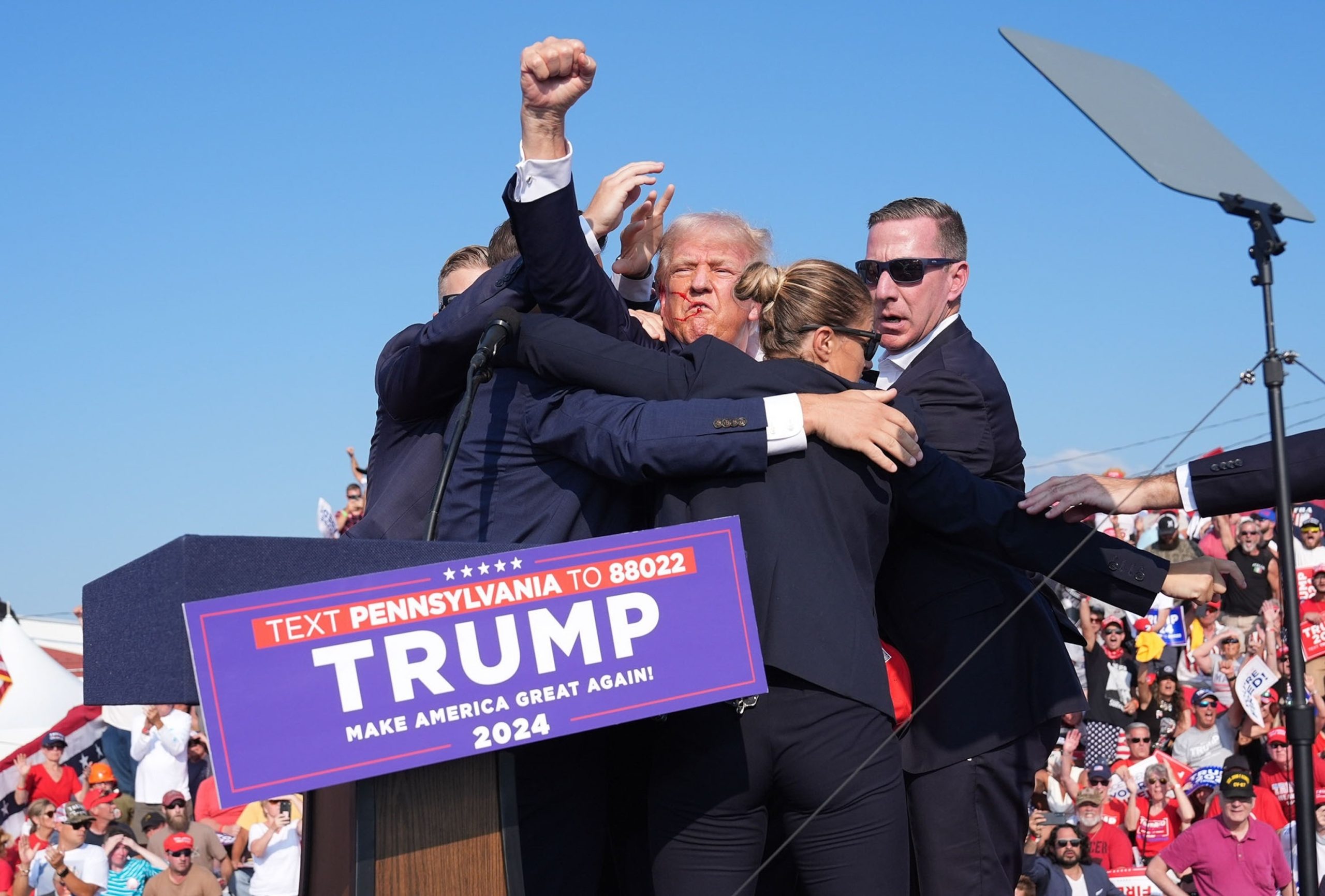A virtual voting process kicks off on Thursday morning to formally designate Vice President Kamala Harris the official presidential nominee of the Democratic Party.
Harris was already deemed the presumptive nominee by the Democratic National Committee on Tuesday after she emerged from a process, laid out by the party’s Rules Committee, as the only qualified candidate.
The results of the virtual roll call — opening at 9 a.m. ET on Thursday — will be announced after 6 p.m. ET on Monday, which is the deadline for convention delegates to virtually submit votes. Delegates will get a secure ballot to cast a vote “on a rolling basis.” Delegates can cast those ballots by email or can ask to vote by phone.
Thus, Harris’ official nomination will come two weeks ahead of Democrats’ in-person convention starting in Chicago on Aug. 19.
The DNC initially decided in May to hold a virtual roll call because of uncertainty over deadlines to get on the ballot in Ohio. The state legislature eventually rectified the issue, but the DNC has argued that Republican lawmakers in Ohio are acting in bad faith and that the Democratic candidate needs to be nominated earlier than the convention to avoid legal issues. Ohio leaders have denied this allegation.
The virtual process is expected to mimic the nominating and voting that is held at the Democratic National Convention every four years, with a ceremonial roll call still slated to be held in-person in Chicago.
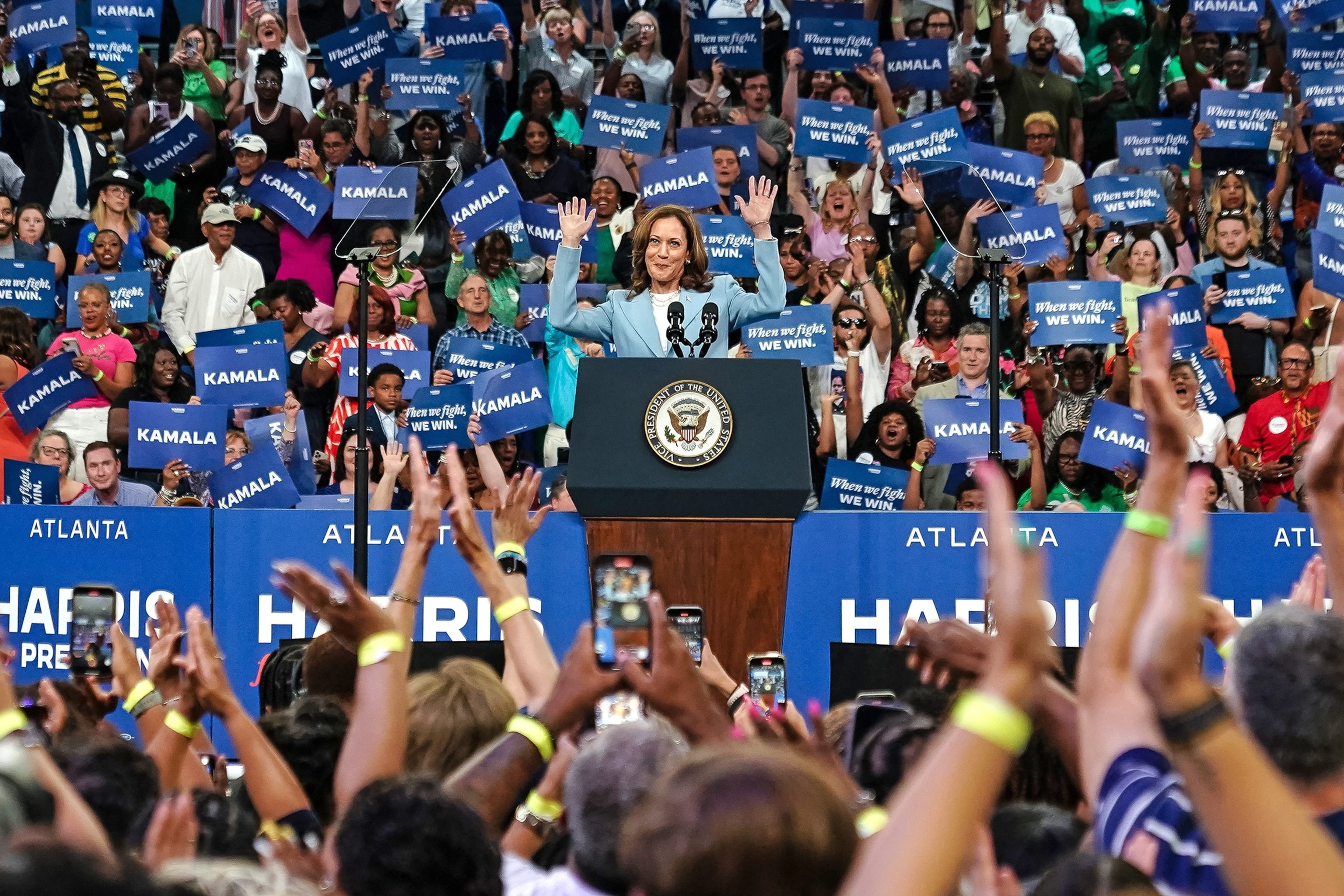
Vice President and 2024 Democratic presidential candidate Kamala Harris gestures as she speaks at a campaign event in Atlanta, July 30, 2024.
Elijah Nouvelage/AFP via Getty Images
“Democratic delegates from across the nation made their voices heard, overwhelmingly backing Vice President Kamala Harris as the Democratic Party’s presumptive nominee,” a statement from DNC Chair Jamie Harrison and DNCC Chair Minyon Moore released on Tuesday night said.
“We move to this final stage of our nomination process with unprecedented momentum and unity across our party. We stand united in our mission to elect a Democratic nominee who has the experience, the wisdom, and the bold determination to lead our country, and we stand united in our mission to defeat Donald Trump once again … We look forward to celebrating together with all of our delegates in Chicago,” they added.
In order to have been qualified for the presidential nomination, candidates needed to submit a declaration of candidacy and to get 300 delegates to send in virtual signatures supporting them. That window to submit materials concluded on Tuesday.
Three other Democrats who are not Harris had indicated their interest to run for the top of the ticket: Robert C. “Robby” Wells, Jr., Gibran Nicholas and Ralph Robbie Hoffman.
The DNC said on Tuesday that these three individuals did not make the threshold of 300 delegate signatures to qualify for the ballot.
According to the party, “3,923 delegates from across the country petitioned to put Vice President Harris on the ballot for the Democratic nomination, and Vice President Harris secured the support of 99% of participating delegates, with 84% of total delegates submitting a signature during the petitioning phase.”
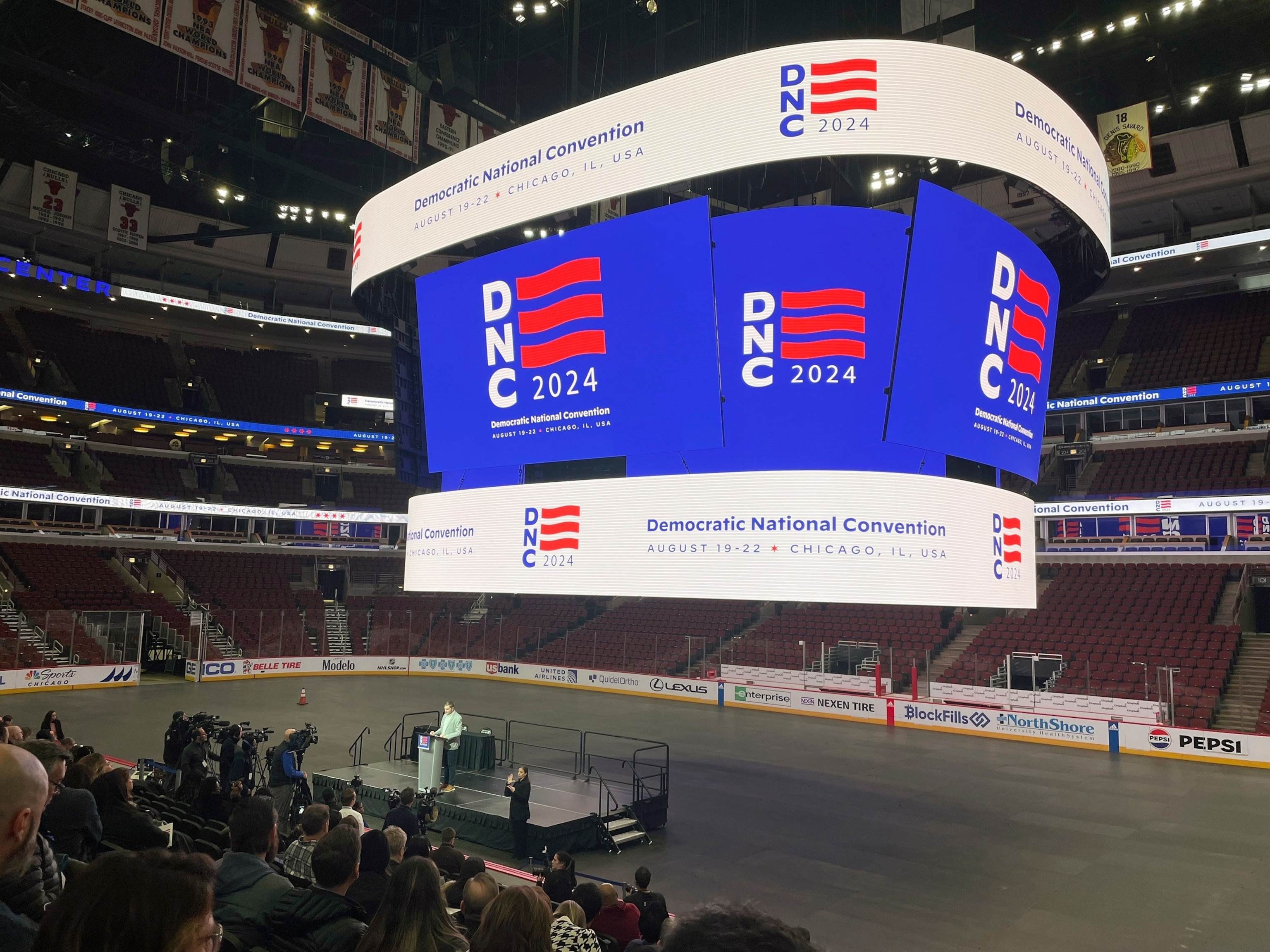
Media attend a Democratic National Convention walk through at the United Center in Chicago, Jan. 18, 2024.
Pablo Martinez Monsivais/AP
The process received more scrutiny after President Joe Biden’s debate performance in late June, which sparked a contentious debate within the party over if he should continue running for president and accusations that the virtual roll call process would shuttle him to the nomination regardless. (The DNC at the time emphasized that the process had been greenlit before the debate.)
Once Biden stepped out of the race and endorsed Harris, the debate around the virtual roll call mostly receded, although some still called for a less complicated nominating process. It took only about two days into her new candidacy for Harris to secure enough non-binding commitments from delegates around the country who said that they’d vote for her to assure she’d clinch the nomination.
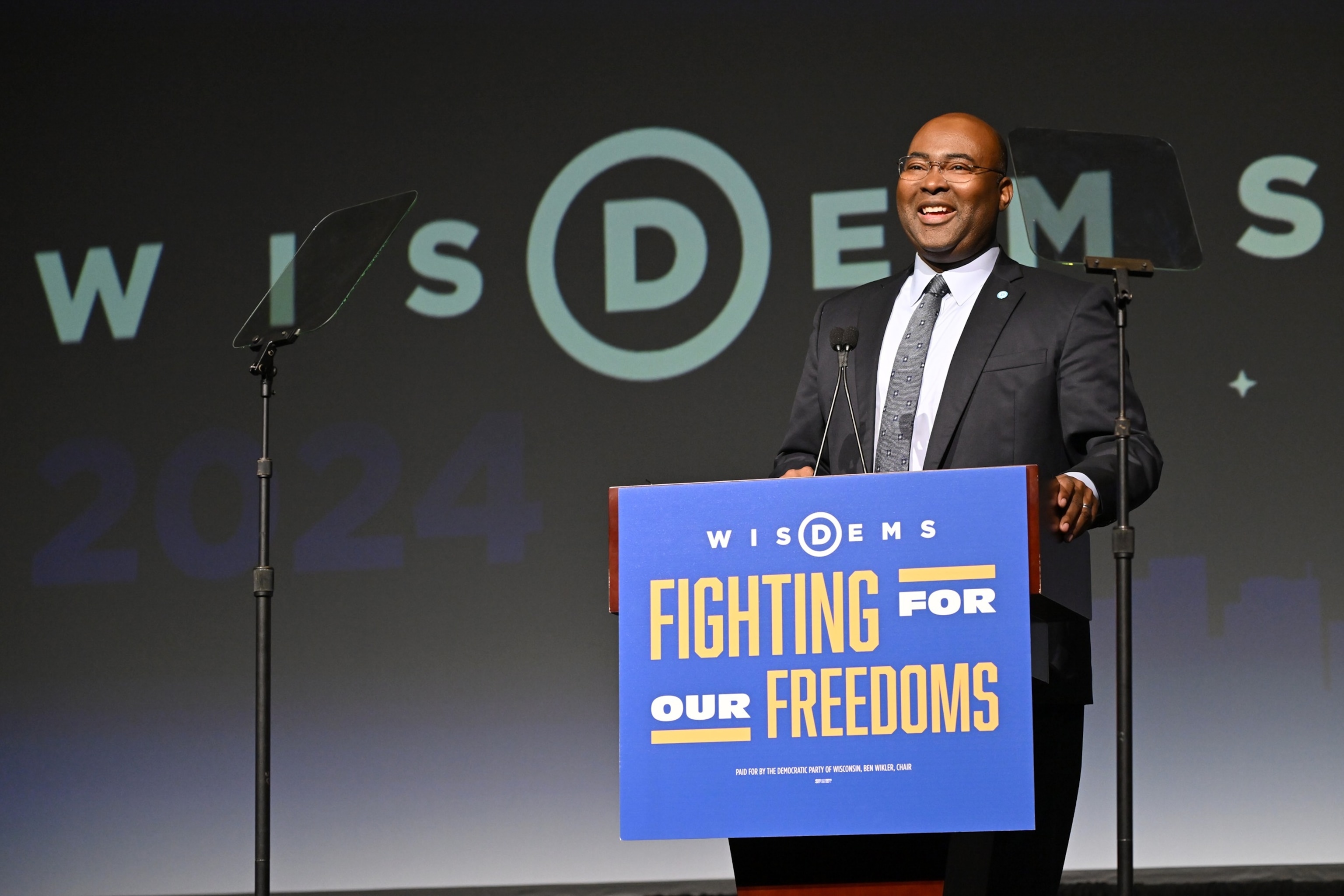
Jaime Harrison speaks during the WisDems 2024 State Convention, June 8, 2024, in Milwaukee.
Daniel Boczarski/Getty Images
“I don’t like doing a virtual roll call vote on principle, but I understand the need for one this year,” Will Thompson, a delegate from North Dakota who has said he is supporting Harris, told ABC News.
He hopes future party conventions could be scheduled earlier in order to not run into deadline and timing issues with getting on state ballots.
“I trust the security of the virtual roll call process, but as someone who was unable to go to the 2020 DNC in person because of the COVID-19 pandemic, I was looking forward to doing everything in person this year … it won’t dampen my extremely high enthusiasm for the event and election writ large,” Thompson said.
ABC News/ Brittany Shepherd and Jacob Steinberg contributed to this report.
The Democratic National Convention (DNC) kicked off its historic virtual event on Monday, August 17th, marking the official start of the process to nominate Senator Kamala Harris as the party’s vice presidential candidate. Due to the ongoing COVID-19 pandemic, the convention was forced to go entirely virtual for the first time in its history, with delegates participating remotely from all 50 states and territories.
The roll call, a traditional part of the convention where delegates from each state officially cast their votes for the party’s nominee, took on a new format this year. Instead of gathering in a crowded convention center, delegates appeared on screen from their respective locations, showcasing the diversity and unity of the Democratic Party.
Senator Harris, who made history as the first Black woman and first person of Indian descent to be nominated for vice president by a major political party, has been a trailblazer in her career. As a former prosecutor, attorney general of California, and now a U.S. senator, Harris brings a wealth of experience and a commitment to justice and equality to the ticket.
During the roll call, delegates from across the country highlighted Harris’s accomplishments and qualifications, emphasizing her dedication to fighting for working families, healthcare access, and criminal justice reform. Many speakers also praised her selection as a historic moment for women and people of color in politics.
The virtual nature of this year’s convention allowed for a more inclusive and accessible experience, with viewers tuning in from their homes and engaging with the proceedings online. While some traditional aspects of the convention were missed, such as the energy of a live audience and the excitement of in-person events, the virtual format provided a unique opportunity for Democrats to come together in a new way during these challenging times.
As the roll call continued throughout the evening, it became clear that Senator Harris had overwhelming support from delegates across the country. With her nomination now official, Harris will join former Vice President Joe Biden on the Democratic ticket for the upcoming presidential election in November.
The DNC’s virtual roll call to nominate Kamala Harris was a historic moment that showcased the strength and unity of the Democratic Party. As the first woman of color to be nominated for vice president by a major party, Harris’s selection represents a significant step forward in American politics and a testament to the progress and diversity of our nation.

